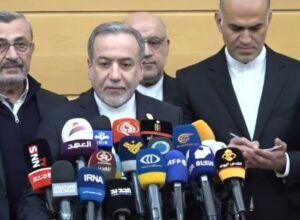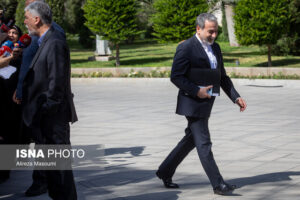Avash News: Speaking at a conference titled “Legal Response to the 12-Day Aggression: From Criminal Justice to Restorative Justice” held on Saturday at the Faculty of Law and Political Science of the University of Tehran, Esmaeil Baghaei referred to multiple violations of international law by certain countries on various issues.
“We have repeatedly witnessed the violation of international law by some countries regarding both the Joint Comprehensive Plan of Action (JCPOA) and Resolution 2231 of the Security Council,” he said.
The senior diplomat continued, “Over the past two or three months, three European countries — all members of the JCPOA — have sought to reactivate the Security Council’s resolutions against Iran and, in effect, to trigger the snapback mechanism. From the very beginning, we made it clear that such actions by the Europeans are illegal. This is not merely a political stance but a legal reality.”
He added, “In fact, we believe no formal decision has been made in the Security Council, as two of its permanent members — China and Russia — opposed the move. Two other members also expressed their opposition, and two others abstained from voting on the reinstatement of sanctions against Iran.”
Baghaei called on legal experts to address the issue in their writings, noting, “Many countries share our legal position. As seen in the recent ministerial meeting of the Non-Aligned Movement (NAM) in Uganda, around 120 member states supported Iran’s stance and emphasized that the attempt by the three European countries to revive anti-Iran resolutions lacks legal validity.”
He went on to say, “The European trio’s move has created a legal deadlock within the Security Council, where no consensus exists on the matter. At times, we witness that those who break the law misuse legal mechanisms to justify their unlawful acts.”
Commenting on the justifications presented by the Zionist regime and the United States for attacking Iran, Baghaei said, “The Zionist regime has claimed its strikes against Iran were preventive, but such reasoning has no standing in international law. Iran’s response was a legitimate act of self-defense against aggression.”
“It is clear that Iran has been subjected to an unprovoked military attack, and this fact must form the foundation of our legal and human rights arguments regarding the war and violations of international law,” he added.
The spokesman further said that the Foreign Ministry has published a comprehensive report on the issue, and documentation efforts have been ongoing since the first day of the conflict.
“We are dealing with a regime — the only one in the world — that has been accused by two international courts of violating human rights and committing three of the four crimes listed in the court’s statute. Its criminal aggression against Iran is undeniable,” Baghaei said.
He noted, however, that “the main challenge lies in the unwavering support the Zionist regime receives from the U.S. and certain Western states, which continuously shield it from accountability and punishment — a situation that makes our legal efforts more difficult.”
Baghaei concluded, “Despite these challenges, we must not lose hope. We will continue to collect evidence and document violations. We hope that one day we will be able to pursue our rights before a competent international court.”







